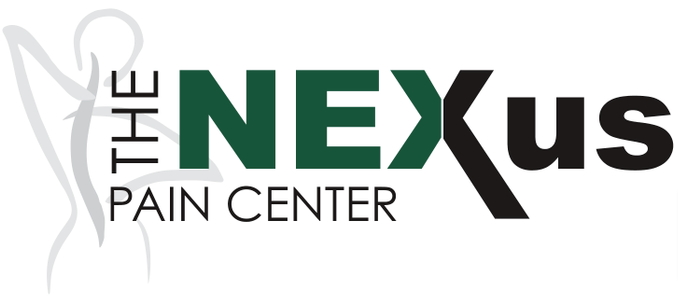Understanding the Importance of Early Pain Management
Pain is the body’s way of signaling that something is wrong. When addressed early, it can often be managed effectively, preventing it from becoming a chronic and debilitating condition. However, many individuals ignore or delay seeking treatment, assuming the pain will resolve on its own.
Unfortunately, untreated pain can escalate, leading to long-term physical, emotional, and financial consequences. Early pain intervention plays a critical role in improving patient outcomes, reducing the need for invasive treatments, and enhancing overall quality of life.
How Untreated Pain Leads to Chronic Conditions & Long-Term Suffering
The Science Behind Chronic Pain: How It Develops & Why It Worsens
Acute pain, if left untreated, can develop into chronic pain, which is far more complex and difficult to manage. Chronic pain is not just an extension of acute pain; it often occurs when the nervous system becomes overly sensitized, continuing to send pain signals even after the initial injury has healed.
This condition can persist for months or even years, affecting both physical health and emotional well-being. Conditions such as neuropathy, arthritis, and nerve-related disorders can progressively worsen, making daily activities more painful and limiting mobility.
Early Intervention Breaks the Chronic Pain Cycle
By seeking early pain intervention, patients can prevent chronic pain and avoid prolonged suffering. Nexus Pain Center specializes in targeted therapies like:
- Nerve blocks
- Spinal cord stimulation
- Minimally invasive injections
These treatments disrupt the pain cycle before it takes hold.
Consequences of Ignoring Early Signs of Pain
Ignoring early symptoms of pain can have significant consequences, leading to reduced mobility, chronic discomfort, and a lower quality of life.
Common Warning Signs That Pain May Become Chronic:
- Persistent joint stiffness that limits movement and worsens over time
- Recurring backaches that don’t subside with rest or simple treatments
- Tingling sensations in the limbs, which may indicate nerve damage
- Frequent headaches that increase in intensity or frequency
The Hidden Costs of Delayed Pain Treatment
Financial Burden
Chronic pain often requires long-term medication, physical therapy, and, in severe cases, surgery—all of which can be costly.
Mental Health Effects
Persistent pain has been linked to anxiety, depression, and sleep disturbances, further impacting well-being.
Reduced Mobility & Function
As pain worsens, patients often experience muscle atrophy and decreased movement, making daily life more challenging.
Ignoring these early warning signs can lead to chronic pain that is much harder to treat. The sooner a patient seeks expert pain management, the better their long-term health outcomes will be.
The Power of Pain Documentation: A Key to Better Treatment
One of the best ways to ensure timely pain management is by tracking pain symptoms. Keeping a detailed pain journal—recording pain occurrences, intensity, triggers, and relief methods—can provide valuable insight for healthcare providers.
How a Pain Journal Helps Patients Get Better Care
- A patient with chronic lower back pain may notice that it worsens after prolonged sitting but improves with light stretching.
- A migraine sufferer might track recurring headaches and discover dehydration or specific foods as triggers.
- A person experiencing nerve pain may document tingling sensations spreading over time, signaling a need for earlier intervention.
This data allows specialists at Nexus Pain Center to create personalized, minimally invasive treatment plans—resulting in faster relief and better long-term management.
How Nexus Pain Center Provides Advanced Pain Management Solutions
At Nexus Pain Center, we specialize in comprehensive, advanced pain management solutions designed to prevent pain from becoming chronic. Our expert team uses cutting-edge diagnostic services and early-stage treatment options to identify the root cause of pain.
Minimally Invasive Pain Management Treatments We Offer:
- Spinal Cord Stimulation – Helps block pain signals before they reach the brain.
- Peripheral Nerve Stimulation – Targets nerve-related pain with advanced technology.
- Via Disc Procedure – Reduces pain by disrupting pain signals in the affected nerves.
- Joint Injections – Delivers targeted relief for arthritis, joint pain, and mobility issues.
By focusing on early intervention and personalized treatment, we help patients achieve lasting relief without prolonged medication use or surgery.
Take Control of Your Pain Before It Worsens
Pain doesn’t have to control your life. Early intervention can make all the difference in preventing chronic pain and long-term discomfort.
Are you experiencing persistent pain?
Do you want expert treatment to avoid invasive procedures?
Ready to take the first step toward lasting relief?
Schedule a consultation with Nexus Pain Center today! Our compassionate team is dedicated to providing advanced pain relief solutions tailored to your needs. Contact us now and start your journey to a pain-free life!
Frequently Asked Questions (FAQs)
What are the first signs of chronic pain?
Common early warning signs include persistent joint pain, recurring backaches, nerve tingling, and frequent headaches. Addressing these symptoms early reduces the risk of chronic pain development.
How does early intervention help in pain management?
Treating pain early prevents nerve damage, chronic conditions, and the need for surgery. Advanced pain clinics like Nexus Pain Center offer minimally invasive treatments to address pain at its source.
What are the best treatments for chronic pain prevention?
Effective early pain management options include nerve blocks, spinal cord stimulation, and joint injections. A proactive approach reduces long-term medication dependence by up to 40%.

